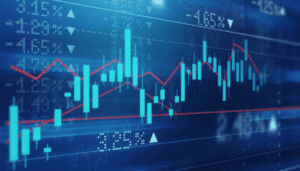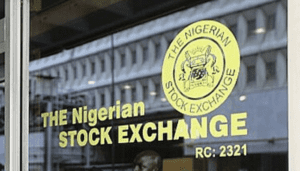
Dangote Cement records healthy margins despite slide in H1 2022 profit
Dangote Cement (DangCem) is the most valuable cement company and the second most valuable stock on the Nigerian Exchange (NGX) with a market capitalization of N4.17 trillion, twice the size of BUA Cement Plc and Lafarge Cement Plc combined.
The largest cement company in terms of production capacity of 51.6 million metric tonnes/pa compared to BUA Cement’s 11 million metric tonnes/pa and Lafarge Africa’s 10.5 million metric tonnes/pa, has recorded a 10 per cent decrease in its half-year (H1) 2022 profit, due to higher foreign exchange pressures and energy costs incurred, which have become trending systematic risks.
The Industrial Goods Sector Company’s financial statement as released on the NGX shows that profit after tax dipped by 10.19 per cent to N172.105 billion compared to N191.631 billion in HY 2021; revealing a dip in net profit margin by 23 per cent to 21.31 per cent from 28 per cent in H1 2021.
A further review of the H1 2022 financial statements reveals that the earnings slump was mainly driven by elevated cost pressures and increased interest expenses. For instance, DangCem reported a 16.8 per cent increase in the cost of sales to N322.46 billion in H1 2022 from N276.12 billion in H1 2021, driven primarily by a 31.3 per cent hike in fuel and power consumed (especially diesel and coal), that closed H1 2022 at N129.96 billion from N98.98 billion in H1 2021.
Going by the growth in production and selling/distribution costs, which are respectively 59 per cent and 71 per cent of the 2021FY figures and as inflation and energy costs continue to soar, expectedly, exerting more pressure, the company is most likely to exceed its respective 2021FY costs and that, might contract the healthy H1 2022 gross profit (+60 per cent) and operating profit margin (+39 per cent).
However, it is important to note that the company’s gross profit margin has not been volatile, which could have been a signal of poor management practices. Over the past two years, the margin has been about 60 per cent on average per year. Also, DangCem’s gross profit margin is higher compared to its peers; BUA Cement (+48.3 per cent, H1 2022) and Lafarge (51.5 per cent, H1 2022), though the gross profit margin of the companies was bolstered by an upward product price adjustment and not due to increase in production volume, which led to, for example, the growth in DangCem’s revenue by 17.01 per cent to N808 billion from N690.5 billion in the comparable periods, while production volume went down to 13.8 metric tonnes in the first half of 2022 from 14.5 metric tonnes in the same period last year due to the same disruptions in energy supply.
Another cost centre that affected DangCem’s profitability is finance costs. The cement maker’s profit before tax margin dipped due to higher finance costs on higher interest expenses and foreign exchange loss. The company suffered N40.66 billion foreign exchange losses in H1 2022 from N4.94billion reported in H1 2021, attributable to dwindling Naira in the foreign exchange market. This impacted the net finance cost, which surged, up 154.2 per cent to N53.2bn in H1 2022 from N20.9 billion in H1 2021. The growth in net finance cost came from a 147.9 per cent year-on-year increase in finance cost to N75.2 billion, which masked the 233.9 per cent year-on-year increase in finance income to N22 billion.
Overall, in spite of the very challenging macroeconomic environment, DangCem recorded relatively decent earnings per share of N10.10 per share, which is higher than Lafarge’s N2.32 and BUA Cement’s N1.81 for the same period.
Dangote Cement Plc is a strong brand with a very strong and adequate balance sheet. The company has been listed on the NGX since October 26th 2010 with market capitalization of N4.17 trillion (August 23, 2022), which makes up about 15.9 per cent of the entire Nigeria Stock Exchange equity market.
But due to negative sentiment witnessed on shares of some blue-chip firms quoted on the Exchange, DangCem has recorded a loss in its share price as depicted in its 1WK, 4WK, 3MO, 6MO, 1YR and YtD loss. It closed trading at N245.00 on August 23, 2022, and having started the year with a share price of N257.00, has lost 4.67 per cent on that price valuation, ranking it 106th on the NGX in terms of year-to-date performance. Notwithstanding the loss, investors should note that DangCem is still trading within its 52-week high/low band of 241.00-300.00 (09/8/22 -23/5/22).
DangoteCem is a stable and dividend-paying company. The company’s cash flow shows that over the past five years, dividend payments have been consistent. This is good, especially for value investors. On February 26, 2022, the company announced a dividend of N20.00 for payment on June 15, 2022. This represents a dividend yield of 8.16 per cent (23/8/22), which is higher than BUA Cement’s (+5.06 per cent) and slightly lower than Lafarge’s (+8.33%), an indication that Larfage Wapco, relative to current share price is paying more dividend income to its shareholders than DangCem and BUA Cement.
Chief Executive Officer, Dangote Cement, Michel Puchercos, speaking on the H1 2022 result said: “Despite the elevated inflation due to a very volatile global environment, the first half of 2022 has been positive. We recorded increases in revenue and EBITDA that drove strong cash generation across the Group. We recorded revenue of N808.0 billion up 17 per cent compared to last year and Group EBITDA of N373.2 billion, up 6.3 per cent with an EBITDA margin of 46.2 per cent.”
Though the company’s H1 2022 EBITDA increased, the margin shrank to 46 per cent from 51 per cent in H1 2021, due to an increase in operating expenses, especially the surge in haulage expenses by 65 per cent to N112 billion following the rise in diesel prices in Nigeria. But the good thing is that the company’s Enterprise value to EBITDA at 6.75 is healthy. Typically, EV/EBITDA values below 10 are seen as healthy, though a comparison of relative values among companies within the same industry is the best way for investors to determine companies with the healthiest EV/EBITDA. Within the same valuation period, BUA Cement has an EV/EBITDA value of 16.45, while Lafarge has 3.53 according to reports from Wall Street Journal.The drop in EBITDA margin is a wake-up call on the company to devise means of reducing its operating costs or increasing its revenue with a major focus on the Nigerian market. Nigeria accounts for the greater percentage of the company’s sales volume. Of the 14.2Mt sales volume, Nigerian operations accounted for 9.3 Mt while the balance was contributed by operations in other African countriesAlso necessary is to militate against the rising costs of energy by strengthening efforts to ramp up the usage of alternative fuels and reduce the dependence on imported inputs.



